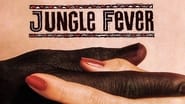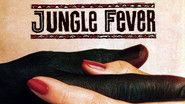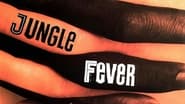Huievest
Instead, you get a movie that's enjoyable enough, but leaves you feeling like it could have been much, much more.
Iseerphia
All that we are seeing on the screen is happening with real people, real action sequences in the background, forcing the eye to watch as if we were there.
Derry Herrera
Not sure how, but this is easily one of the best movies all summer. Multiple levels of funny, never takes itself seriously, super colorful, and creative.
Aneesa Wardle
The story, direction, characters, and writing/dialogue is akin to taking a tranquilizer shot to the neck, but everything else was so well done.
Satchmo_on_Satchmo
Jungle Fever, the feature film by Spike Lee directly preceding his well-respected biopic Malcolm X, is a whopping statement against drugs and white supremacy. To reference an earlier Lee "joint's" title, it explores the respective dazes of two African-American brothers - Flipper Purify (Wesley Snipes), who's mesmerized by a white woman's lure, and Gator Purify (Samuel L. Jackson), a crack addict. Lee's thorough investigation of the drugs and race issues is undercut by his inability to write a truly satisfying narrative featuring Flipper and Gator's plot lines.To return to the film's central issue of delusion, its most problematic viewpoint is that of extensive judgment of architect Flipper's affair with his Italian-American secretary, Angie (Annabella Sciorra). Lee's title, Jungle Fever, slyly refers to a psychological haze experienced by some people in interracial relationships. The rub comes in Lee's obvious statement on what Flipper - and perhaps all black men who are involved with white women - want, in the character's name: "Flipper Purify." Could a more ham-fisted summary be presented in film? In addition, Snipes' character is rebuked for his taste in women repeatedly in the film's diegesis: by his father the Good Reverend Doctor Purify (Ossie Davis), by his wife Drew (Lonette McKee), and by a nosy, grating, black waitress played by Queen Latifah, to name a few. So condemning is Lee's treatment of Flipper and Angie's desire for one another, by the film's end, it's rendered as a drug like Gator's crack cocaine. No intrinsic, long-lasting value can be drawn from it.This moral is the film's worst flaw. Technically, it is very accomplished, even if the central "romance" is empty and unfulfilling. There are several great acting performances, among them Ossie Davis' turn as the Good Reverend; John Turturro as a store clerk who is jilted by Angie and looks for love with an African-American woman; the great Anthony Quinn as the clerk's father who holds onto bigotry as a source of personal identity; Wesley Snipes, towering as he navigates Lee's elaborate story realm; and Samuel L. Jackson as the witty crackhead brother Gator. While on the subject of Jackson, he has revealed that he was actually addicted to crack when he learned he got the role of Gator. The judges at the Cannes Film Festival created a new award specifically to honor Jackson's vivacious acting. Ernest Dickerson functioned well as the film's director of photography, bringing vivid colors to the story. The film's music stays interesting, being a collage of mainly Stevie Wonder, Mahalia Jackson and Frank Sinatra, with a bit of vintage Public Enemy thrown in for good measure.Some words should be allotted to mentioning the film's centerpiece, a subplot sequence wherein Flipper goes looking for his brother and ventures into a den of iniquity called the "Taj Mahal." This is a building where hundreds of crackheads go to enjoy crack, trade sex for drugs, etc. Snipes gives a singular effort with the search scenes, backed by a very well-planned soundtrack pick of Stevie Wonder's "Livin' For the City." Gator explains to Flipper that the television set Flipper's mother wants has been "smoked" away. Afterward, Jackson does a superb job of portraying the damned while Flipper treads away, and Halle Berry could be said to do a good job in her first movie role as a crack addict, if a good job constitutes growling lines like "Eat me, mother*$#@er!" Lee's drug expose should move many - a cinematic uppercut just as sobering as when Drew suggests to Flipper during an argument that "white people hate black people because they're not black." Drew's harrowing narrative of being a mixed, light-skinned black woman in a race that is obsessed with color is a tear-jerker. But Lee has no problem summoning powerful scenes. Rather, it's his inability or unwillingness to link his plot lines more cohesively that pulls down the work. As a whole, Jungle Fever remains much less captivating than the sum of its parts.
bob the moo
Flipper Purify is a successful architect with a beautiful wife and a smart young daughter back at his apartment. When he gets a new temp in to work alongside him he is not pleased that she is white but her hard work impresses him. Working late one night, chatting becomes a connection which becomes flirting which becomes sex. Their affair continues even as Flipper quits his job to branch out alone. However his life is thrown into chaos when his wife Drew finds out.The opening credits are catchy and the material is just the sort of racial issue that Spike Lee made his name but somehow the film itself really failed to catch my imagination or hold my attention. The central plot is simple enough but Lee fills it out with characters, debate and a couple of subplots but yet somehow doesn't manage to pull it all together into one compelling film. Of course those that like Spike Lee know that even when he is at his most average he can still make an interesting film. And so it is here because the film does have plenty of interesting scenes but it is the narrative and formulation of his point where it fails to come off. In his defence Lee has written some convincingly real characters with unfortunately real attitudes but by leaving these people mostly unchallenged to deliver their opinions he allows two things to happen. Firstly the film feels like a series of disjointed conversations – most of which are interesting enough to listen to but don't a total film make.Secondly, and more importantly, Lee appears to be in agreement with some of his characters that mixed race relationships are not a good idea. If this is not his opinion then he has done a poor job in putting his thoughts across. If he is in agreement then he has done a poor job in presenting this point in a coherent and convincing fashion. Instead it seems like the racists have won – which is maybe is his point but if so yet again he hasn't done a good job of putting it across. In fact thinking about it, his point probably is that it all isn't worth the effort but, like I say, it isn't very well delivered and a lot of the ideas are half-cooked. The cast make it well worth a look regardless thanks to Lee's usual skill in assembling his actors. Snipes has massively fallen from grace in regards his career and his personal life but here he is pretty good. The material is just a little beyond his range but he does the basics well. Sciorra is better and works well with him. Lee is Lee while McKee is rather wasted with her simplistic race rage. Quinn is a nice touch in support while Turturro is as good as I have come to expect from him. Davis and Dee are good but they exist in another film, albeit the drugs subplot is interesting and both Jackson and Berry are impressive but it doesn't really fit. Lee's direction is his usual style but his use of soundtrack is weak – the tunes themselves are good but he doesn't put them across the film with any reason or sense of meaning.Overall then an fitfully interesting film as is usually the way with Lee but one that failed to come together or deliver a convincing central message. The depressing message that does come across isn't that well made and as a result isn't as thought provoking as it should have been. The casting is interesting though and the performances mostly do as required in the many good individual scenes. Famous but not as good as the names attached would make you hope.
do-bye
This movie really brought to the limelight how the world deals with interracial dating. Snipes has a loving wife and child. Even with that, he manages to befriend and fall for a white woman. I think that he just wanted to experience something different. In my opinion, I would never date outside of my race because I feel comfortable with black women. The latter part of the film shows the evil side of interracial dating. When Sciorra fathers finds out, he mercifully whips her and kicks her out of the house. Snipes's wife banishes him from his home. Both families learn the meaning of stereotyping and try to come to grips with the adversity they face.
MisterWhiplash
Spike Lee's films are consistent in one respect, even for the lesser ones, which is that they're always pressing buttons. In the case of Jungle Fever, it's another work where messages come out more than from a guy on a postal route. But that's perhaps part of the point, where such points come in many forms and sometimes like a barrage. This time, it doesn't completely gel as well as Lee's Do the Right Thing, which also held anger, contemplation, humor, and pathos about city life. But this time it's also a tale of sexual morays, where both white and black sides have their share of racism and prejudices, and at the core is a story of outcasts. The interesting thing then about Jungle Fever is how Lee's own decisions in casting and in the unique way he shoots his subjects and implements a subjective take more often then not trump what comes out in his script. Then again, maybe it's close to being inevitable with how the elements mix, and at the end there are some parts of the film that are the best that Lee's done so far as a filmmaker.Wesley Snipes and Anabella Sciora star as the said 'jungle fever' couple, the man being married with a kid, of all things to a woman who is also light-skinned and with her own 'issues', and the woman having an 'old-fashioned' Italian father. When their affair becomes known to both sides, the costs come out and they both become outcasts. And at the end of all of the points that are made in Jungle Fever by Lee, even through the ones that are pounded and (of the period) quite topical and prominent, this notion of society and culture being the biggest culprit is hard to ignore. This main point is made very well by Lee's script, and even as sometimes the script doesn't have the best dialog or lines a little 'too easy', if that makes any sense, there are many scenes which do support this to the fullest. And as the job of any good director is to cast right, this film is filled with a who's-who's of professionals and character actors.One could go on as to who appears in the film, from Anthony Quinn to Tim Robbins to Ossie Davis to John Turturro, and they all fit their parts and contribute to adding a level of fascination in each. When the less desirable aspects peak in even more, it only adds to what ends up working on screen. Sometimes the script, as mentioned, is a little derivative and trying to touch ALL bases, with a but the film is more often than not alive due to (some of) the music at times. Maybe the most genius pieces of casting were Samuel L. Jackson, in (arguably) one of his very best performances, and Halle Berry. In a sense there are similar points made in the "A" storyline and the "B" one, where there is some extra interest in the supporting characters and their connection with the main ones. Jackson and Berry are crack-heads, and outcasts, and to their own degree have the same crap end of the stick as the leads to. Among many scenes where confrontations reach a great emotional intensity, the best comes with Snipes going into the crack-house and seeing just the purest dark side of society, what really does bring people down.In the end, Jungle Fever is one of the Lee movies that is worth seeing, that may prove on a repeat viewing to bring even more thought than previous. It's energetic, somber, occasionally funny and shocking in equal measure.







